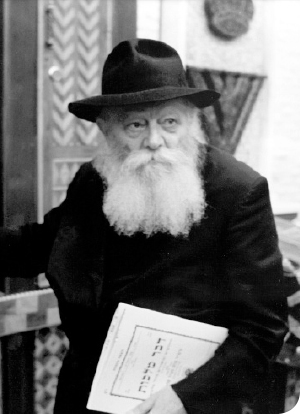AN EXTENSION OF THE PROPHECY OF MOSHE
The Moshiach of the generation is the judge and the prophet of the generation. Moshiach’s main prophecy is “L’alter l’Geula” and “hinei zeh Moshiach ba.” * Chapter Thirteen of Rabbi Shloma Majeski’s Likkutei Mekoros. (Underlined text is the compiler’s emphasis.)
Translated by Boruch Merkur
 9. […] Rambam is lengthy in his description of Moshe’s prophecy, yet it would seem that this information is merely historical and of little halachic significance. What place does this thorough treatment of Moshe’s prophecy have in a strictly legalistic work, designed to guide Jews in their religious observance throughout all generations? And if it pertains to the time after the advent of Moshiach, when “Moshe [will live once again and be] with them,” we will then learn of his prophecy firsthand, and we will not require a ruling about it now!
9. […] Rambam is lengthy in his description of Moshe’s prophecy, yet it would seem that this information is merely historical and of little halachic significance. What place does this thorough treatment of Moshe’s prophecy have in a strictly legalistic work, designed to guide Jews in their religious observance throughout all generations? And if it pertains to the time after the advent of Moshiach, when “Moshe [will live once again and be] with them,” we will then learn of his prophecy firsthand, and we will not require a ruling about it now!
But the fact is that in all generations it is pertinent to know the ruling that “G-d bestows prophecy upon mortals” (the revelation of G-dliness to created beings), including knowledge of the ultimate manifestation of prophecy in Moshe. Indeed, it is possible in any generation that “I shall bring forth to them a prophet…like you,” as Rambam explains that “we believe in all the prophets who arise after Moshe Rabbeinu not solely on the basis of their demonstrating a miraculous sign, etc., but because of the Mitzva that Moshe Rabbeinu commanded in the Torah, etc.” Each prophet is thus an extension of the prophecy and the Torah of Moshe. (However, with regard to the revelation of prophecy, there is a spectrum of varying intensities, as Rambam elaborates.) And in our generation, the extension of the prophecy and Torah of Moshe Rabbeinu is the leader of the generation, my revered father in-law, the Rebbe.
This is especially the case after “prophecy returns to the Jewish people,” an event that “precedes the Messianic era” (as above). The return of prophecy here refers to the prophecy of Moshiach Tzidkeinu (for “he is a great prophet, rivalling [even] Moshe Rabbeinu in prophecy”). In fact, our Sages say that “the first redeemer (Moshe) is the final redeemer,” and in every generation there is one who is fit for this role. Therefore, we must know as a halacha, even in our times (still before the redemption), that there is active prophecy (in Moshiach, even before the redemption) as an expression of and beginning of the ultimate state of prophecy that will be attained after the redemption (“your advisers as in the beginning”). That is, it is not a novel statement to say that prophecy will take place following the advent of redemption. Rather, prophecy will resurface before that, at the level of “your advisers as in the beginning.” Thus, Rambam records this law about Moshe’s prophecy in his work of halachos (especially insofar as Rambam includes in his work also those laws that pertain to the Messianic era, as well as the preface to it).
(From the address of Shabbos Parshas Shoftim, 7 Elul 5751; Seifer HaSichos 5751, pg. 788-789)
 September 20, 2016
September 20, 2016
Reader Comments